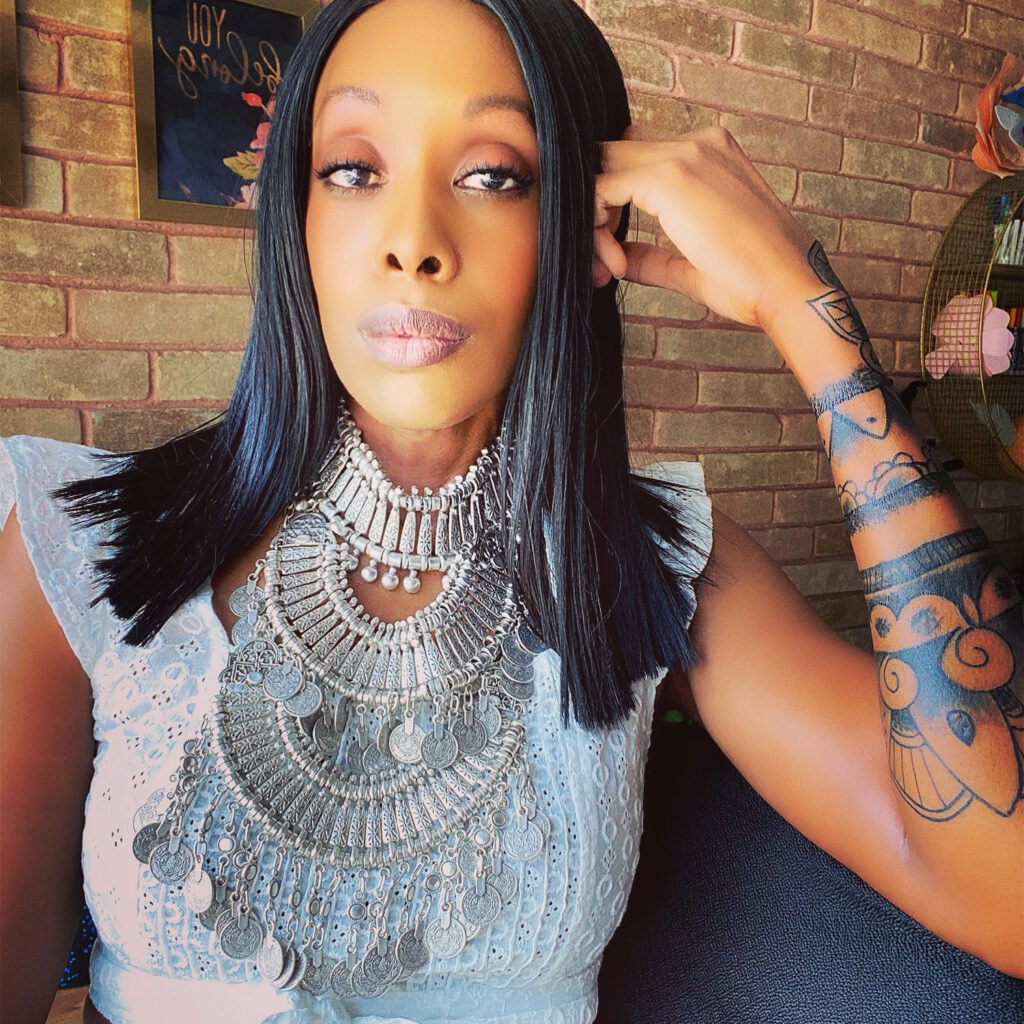Last updated on November 21st, 2025 at 10:24 pm
I Didn’t Leave a Bad Man. I Left a Man That I Had to Question the Purpose of His Presence.

I remember, after spending all day in the little backyard farm I created to help me escape what wouldn’t be addressed in our home, I took off my headphones as one of my kids came running outside to ask me to help them with something. I sighed as I realized it would require me to walk into a house that no longer felt like home to me.
As I walked by the living room into the kitchen, I caught a glimpse of my husband sitting there on the couch focused on the news. Feet up on the coffee table—which I always emphasized I could not stand yet there they were. “Let it go” I whispered to myself as I started grabbing things to help my son. I saw the stool and what looked like the beginnings of him trying to do it himself—yet when he couldn’t—he walked past his father, went down two flights of stairs in our multi-level house, ran all the way to the back of the yard to where I was (we had almost an acre) so he could get his need met. And I was slapped in the face yet again about how the trust we had in him as father and husband, to take care of us, to anticipate and care about our needs had been sealed off.
The Overfunctioning Trap
Overfunctioning burnout turned me into a woman I didn’t recognize nor like.
A woman resentful of his presence without purpose and protection.
A woman bitter at the absence of reciprocity.
A woman jealous of his “clean hands” as I juggled the house, the kids, the finances, the things I never should have carried alone—one hand slick with shame that I couldn’t handle it all and the other coated with anger that I had to.
I kept all of the feelings in a huge bag of guilt because in all honesty, he was a “nice guy” that didn’t purposely try to hurt me. But his lack of awareness for how he was refusing to evolve as our lives changed with time did.
His lack of recoginition that I had changed in negative ways because I was compensating for all the ways he wasn’t willing to did.
His lack of emotional presence did.
His lack of providing a sense of protection for our children and me did.
And once I started stuffing indifference and distrust into that bag of guilt, it could no longer contain all the emotions I had held onto for far too long. Finally I said fuck that guilt because him being a “nice guy” was no longer good enough.

It began to become crystal clear to me that the very things I felt guilt over were the very things he was beginning to loathe in me and they were the very things he helped create in this environment that constantly made me feel I couldn’t depend on him. That I could not trust him to follow through. I couldn’t trust him with the emotions I carried. I couldn’t trust him with ensuring that I felt protected and cared for as his wife and the mother of his children. That I had to continue to carry the mental load to remind him, to check on progress and then usually take on the actual physical load when I had to end up doing it myself.
It often felt as if I had another dependent to care for. And that feeling started adjusting how I moved and approached him. It was no longer as his wife but often as his mother. You want to talk about drying up the well in a snap, that will do it.
And the thing I had to fight against with every fiber of my being, to wrap my mind around, to let go of the judgment against myself that I knew would inevitably come from others was—I didn’t leave a bad man.
What I Actually Left
I did leave a ‘good’ man who refused to see my growth and recognize his need to. And walking away was the most loving thing I’ve ever done—not only for me, for my kids, for my future—but for him too. Because I never wanted to hate him. To get to a point of disrespect, indifference or disgust. I loved him as a person, still do, and it was a bitter pill to swallow when it finally sunk in that the love I had and the potential I saw in him wasn’t enough to bridge the gap between what I needed and what he was willing to provide.
I didn’t leave a marriage. I left a performance masquarading as a partnership where I was no longer willing to play the role of “good wife” in this distorted way that called for self-sacrifice, people pleasing, shrinking my needs, and treating love, rest and peace like something I had to earn. And when I started shedding the conditioning so that I could play the role of partner and mother with truth and softness, I realized those roles could not survive in their current setting. That the supporting character was resisting the new script. That the scene could no longer contain my expansion and that the whole narrative itself needed to be rewritten.
I didn’t leave a happy home. I left the weight of managing and maintaining a household where the warmth had long seeped out in the many cracks in the foundation. Where weaponized incompetence was hung like drapery and resentment on both sides permeated the air. A house where tolerable levels of unhappiness grew and reduced a husband and wife to roommates. A house where we were subconsciously teaching our kids that these immovable walls were normal as we allowed things within us to destroy the foundation that they stood on.
The Capability Gap
I never want to make it seem like everything was his fault because trust me, I had my own issues and traumas to deal with and yet, I was overfunctioning for a fully functioning adult who didn’t have to be “nagged” to handle his responsibilties at work. Who didn’t need a list to tell him what to do. Who took the time and effort to learn what was needed for him to carry out his tasks for his job and knew what needed to be done without having to be asked.
the Truth
Here’s the thing:
I wasn’t asking for the impossible. I was just asking for what he was fully capable of but wasn’t willing to do.
And let me tell you, this is another one of those things that:
- Once you see the unwillingness
- Once you let go of the potentiality so that you can see the clarity of the reality
- Once you fully let it sink in that they have the capability to not only learn what the needs and desires of their job anc can also apply that knowledge to keep their boss satisfied
Yet they still haven’t:
- Learned your love language
- Taken the time to acknowledge and take care of what needs to be done around the house
- Taken the time to know the basics about their own children
- Memorized your birthday
It will completely mind f*ck you if you allow it. So don’t. Don’t allow the unwillingness to become a measurment of your worth.

The Invitation
So Woman on the Rise, I want you to take a deep breath and honor what may be bubbling up inside of you right now that’s threatening to tear through the bag of guilt holding it all in.
I invite you to use these journal prompts and sit in stillnes, in a Sacred Pause moment after you have let the emotions burn away the illusion of potential and ask yourself:
How am I overfunctioning for those in my life that are consistently underfunctioning, underperforming, undergiving, underloving yet aren’t UNDERSTANDING my need for more than “good enough?
What would it look like if I allowed their underfunctioning to reveal itself fully—without me propping up the illusion that everything’s fine?
That day in the backyard, when my son ran past his father to find me, I knew. The walls were built. The bag was full. And I was done.
You see, my becoming didn’t start with all the answers arriving neatly packaged at my door. It started the moment I stopped compensating for someone else’s unwillingness. That was my pivot. That’s when everything changed. And it can for you too.
Remeber, you’re not abandoning them—you’re reclaiming your power to rise.

